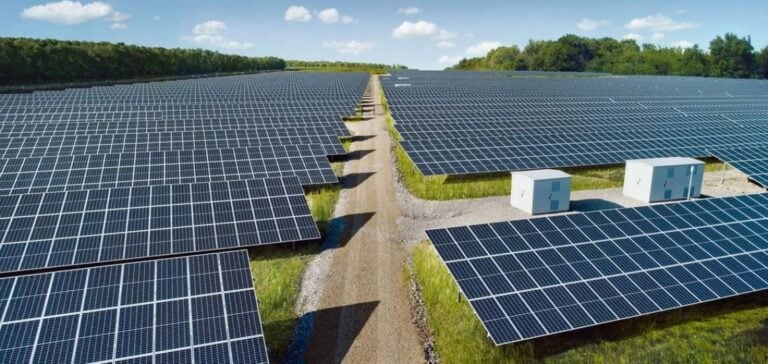REDEN, a major player in photovoltaics, agrivoltaics, and energy storage, has taken a significant step in its energy transition strategy with the inauguration of its new solar module production facility in Roquefort, near Agen. This state-of-the-art plant reflects a strong ambition: producing sustainable energy while strengthening French industrial expertise.
Founded in 2008, REDEN has become a leader in the solar sector, mastering the entire value chain from design to maintenance, including the production of photovoltaic modules. The Roquefort plant, historically instrumental in deploying innovative solutions such as agrivoltaic greenhouses, now has an annual capacity of 200 MW, equivalent to 300,000 solar panels. This output can supply electricity to over 120,000 residents, roughly equivalent to the population of Agen.
A regional and national ambition
In addition to its contribution to the energy transition, the factory is a key driver of local economic development. REDEN focuses on technological innovation to stay competitive in a rapidly growing market while creating jobs and supporting the regional economy. The company works closely with partners such as the Nouvelle-Aquitaine Region and the French Environment and Energy Management Agency (ADEME) to ensure the success of this strategic project.
Agrivoltaics plays a central role in REDEN’s strategy. With over 100 deployed agrivoltaic greenhouses, the company is a national leader in this field. These structures combine energy production and agriculture, offering benefits to farmers while contributing to environmental preservation. REDEN also develops ground-based farms that integrate agricultural and livestock activities to maximize land use while meeting energy needs.
A commitment to decarbonization
France’s Multiannual Energy Program (PPE3) sets ambitious goals: to increase photovoltaic electricity production fivefold by 2035. With its increased production capacity and expertise, REDEN positions itself as a key player to support this trajectory. Combining solar solutions with innovative storage technologies also enhances grid security and strengthens the energy autonomy of territories.
Frank DEMAILLE, Chairman and CEO of REDEN, emphasized during the inauguration: “This factory reflects our commitment to tackling energy challenges for a sustainable future. We thank our partners for their essential support in making this project a reality.”






















